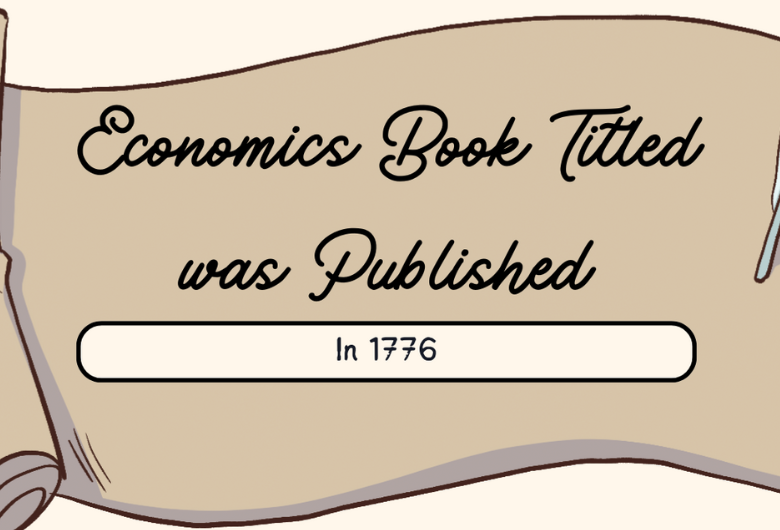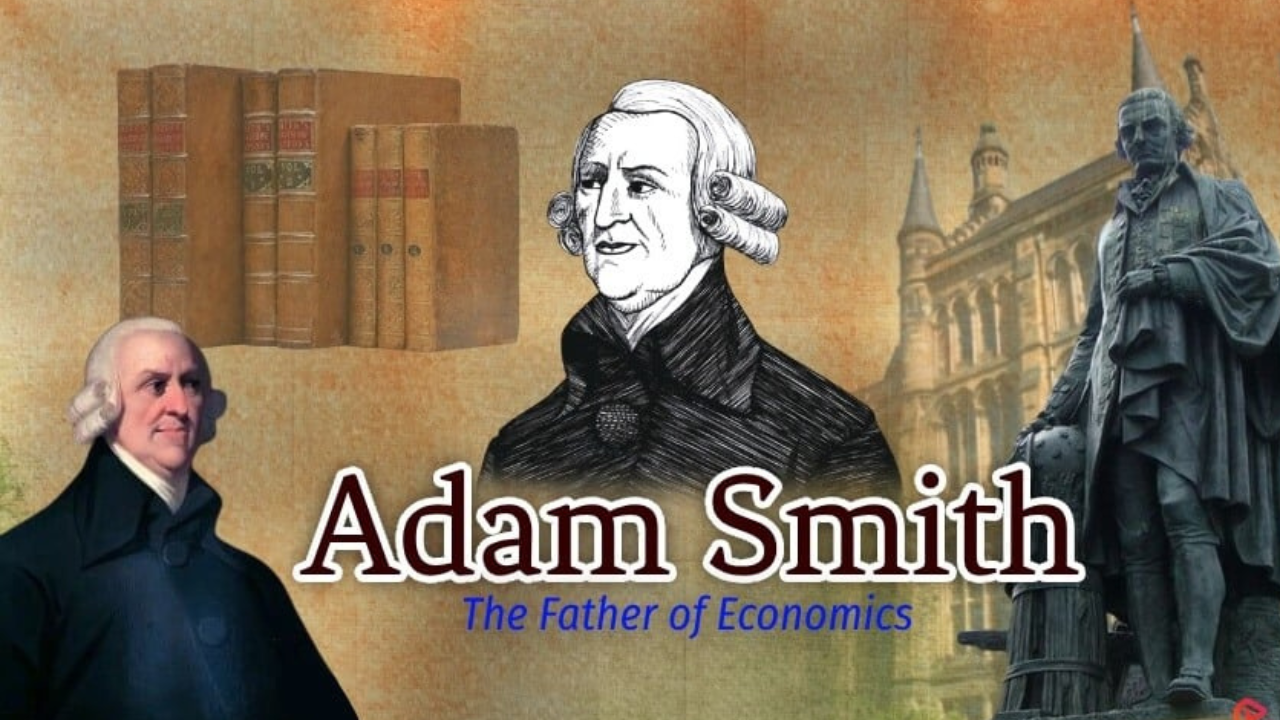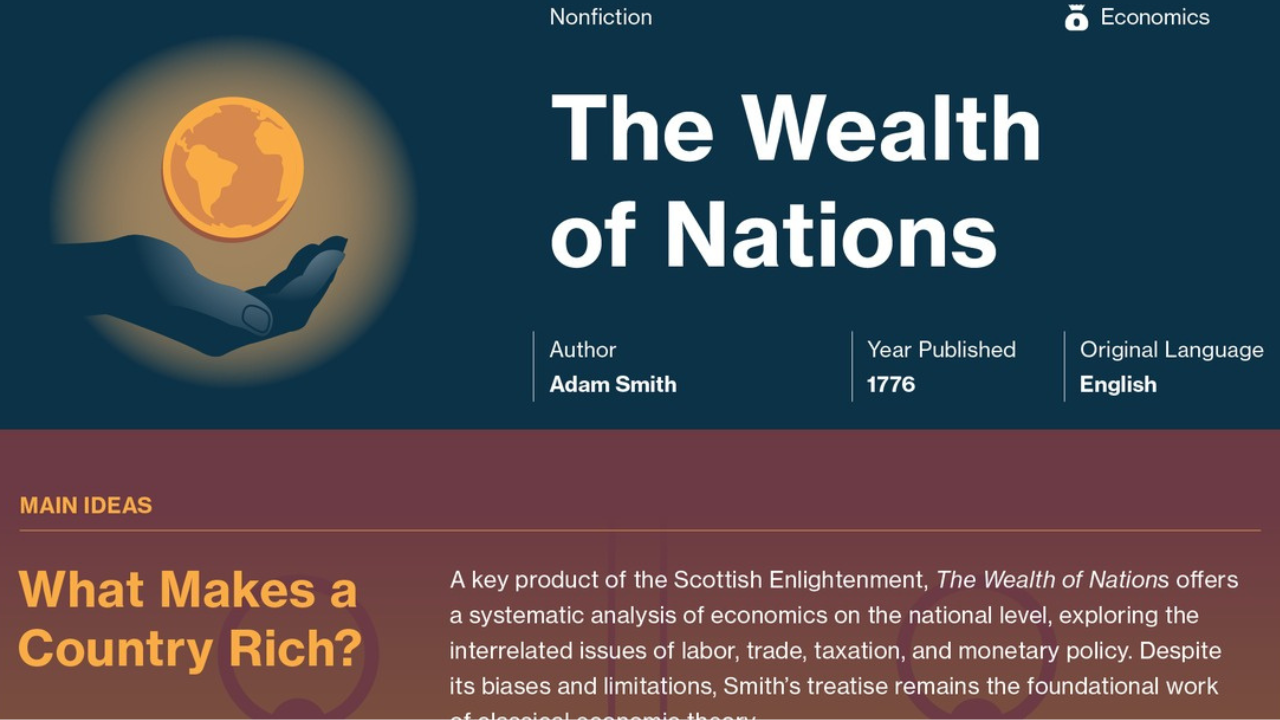In 1776, an Economics Book Titled Was Published to Promote the Concept of Free Enterprise

In 1776, an economics book titled was published to promote the concept of free enterprise, marking a turning point in economic thought. The Wealth of Nations by Adam Smith presented some new ideas that went against the existing mercantilist system with the concepts of free markets and competition.
Composed in the middle of the Enlightenment and at the start of the Industrial Revolution, the book stressed rationality, productivity and the advantages of self-regulating markets. Its publication has been a foundation block to modern economics that has shaped governments and businesses all over the world and has been used to form the basis of capitalism that still shapes world trade.
Who Was Adam Smith?
Adam Smith (1723-1790) was a Scottish philosopher and economist, and generally recognized as the father of modern economics. Smith was educated at the University of Glasgow and Balliol College, Oxford before joining the University of Glasgow as a professor of moral philosophy in 1752.

Smith was a leading personality in the Scottish Enlightenment, where he interacted with other intellectuals such as David Hume and Francis Hutcheson, and who were part of a healthy intellectual movement of the time which focused on reason, empirical observation and personal freedom.
In 1759, Smith wrote The Theory of Moral Sentiments, which questioned the psychological foundation of moral judgements and gave a concept of sympathy (empathy) as an element of ethical action. This was the basis of his subsequent economic ideas, such as those published in The Wealth of Nations (1776).
Challenging Mercantilism
Mercantilism was an economic model common between the 16th and the 18th centuries, which stated that the wealth of a country was determined by the amount of precious metals held by them, the largest being gold and silver. This system promoted a positive balance of trade where exports were given more emphasis than imports and this is supported by governmental interventions such as tariffs and monopolies.
In 1776, Adam Smith attacked mercantilism in his book, The Wealth of Nations. He asserted that an accumulation of gold does not make a person wealthy but the production and exchange of goods and services. Smith argued that mercantilism policies had twisted the markets to favor a few at the expense of causing inefficiencies and increased costs to the rest of the population.

Smith was an advocate of free trade as he believed that when people act in their self-interest in the free markets, they would be helpers of the common good. This view formed the foundation of contemporary economic ideas, which argue that the government should intervene as much as possible in the economy and also that the government should encourage competition to maximize the wealth of the society.
Key Concepts in ‘The Wealth of Nations’
Adam Smith coined a number of fundamental ideas that transformed the economic thought in The Wealth of Nations:
Division of Labor: Smith noted that specialization in production through division of labor is a very efficient way of production. As an example, in a pin factory, when the process was broken down into separate steps workers could produce thousands of pins in a day, whereas only a few workers could be employed to carry out all the tasks.
Invisible Hand: This is a metaphor in which people seeking their personal good in a free market unwillingly bring about the good of the society. In pursuit of self-interest, they will create goods and services of value to other people resulting in more efficient resource distribution without central planning.

Free Markets and Competition: Under the concept of free markets and competition, Smith argued that the government should not interfere much, according to him, because competition brought about innovation and made use of resources most efficiently and hence benefited the entire society.
Value and Wealth: Starting with the mercantilist opinion that the amount of gold in the country is the source of wealth, Smith believed the productive power of a country was the one that defines the wealth; what a country can produce and exchange. This transformation has formed the foundation of economic indicators that are presently in use such as Gross Domestic Product (GDP).
Read Also: Aaryaeditz Org: Your Go-To Platform for Free Photo & Video Editing Tools
Impact on Economic Thought and Policy
The Wealth of Nations by Adam Smith was a masterpiece that contributed greatly to the classical economics, which forms the basis of contemporary economics. His ideas on free markets, competition, division of labor criticized established mercantilist policies, and encouraged the move towards laissez-faire economics.
The ideas of Smith influenced economic policies in the 19 th century in Europe and the Americas. Governments started to open up the trade barriers, they started to embrace industrialization and promote entrepreneurship. These developments led to economic development, innovation, and the development of international trade nexuses.
The long-term implication of the work of Smith is observed in the advancement of the capitalist economies across the globe. His ideals are still used in economic policies by underlining the value of market effectiveness, competition and personal enterprise in the development of prosperity.
Critiques and Modern Perspectives
The argument of Adam Smith in favor of free markets has come under examination. It is claimed by the critics that his theories are simplistic and fail to consider such problems as income inequality and environmental degradation. An example of this is that based on the assumption that the self-interest of people invariably results in the good of society, it fails to explain the scenario in which market failures arise, which include monopolies or externalities.
The concepts of Smith have been modified in modern economics to solve these fears. Contemporary economists combine his ideas with the latest strategies such as behavioral economics and environmental policy to develop a more balanced model that helps take into account both market efficiencies and social welfare. This integration recognizes that there must be regulations to correct market imperfections and bring about fair results.
The relevance of Smith has continued to be relevant because of its flexibility. Although his original ideas continue to carry a lot of weight, their application in the present day is one that is characterized by a complex kind of insight that does not ignore the advantages of the free markets but instead appreciates the need to regulate them carefully.
Final Word
In 1776, an economics book titled was published to promote the concept of free enterprise, forever changing economic thought. The Wealth of Nations by Adam Smith brought about concepts such as division of labor, free markets and the invisible hand which have remained in the modern economies. Its lessons are still relevant in the modern days as they provide an insight into productivity, trade, and market efficiency. Reading the entire text gives a more insight on the origins of capitalism.
Read More: How to get plant-based proteins for daily life and is this good for health





